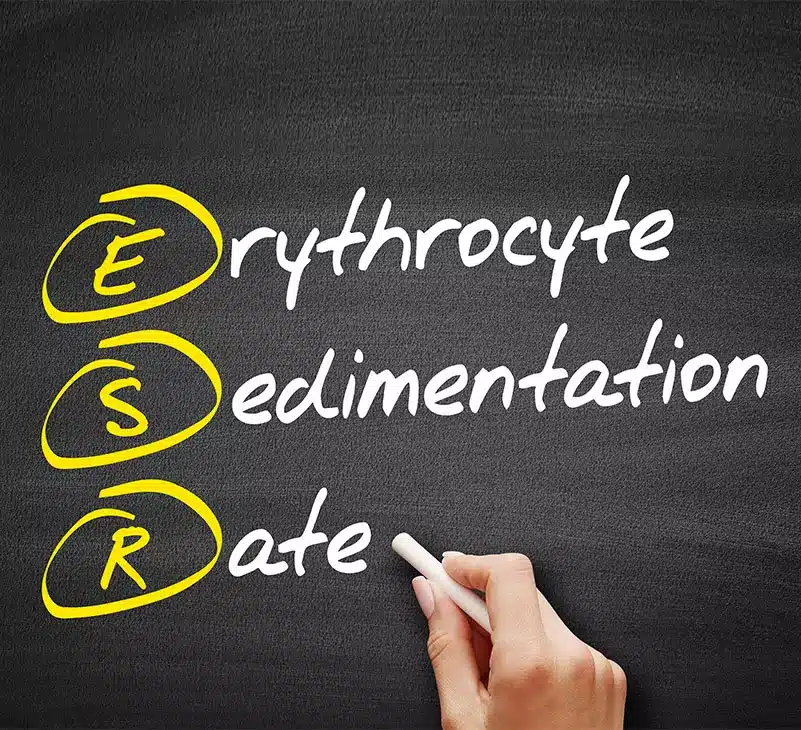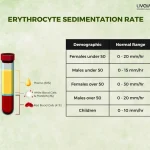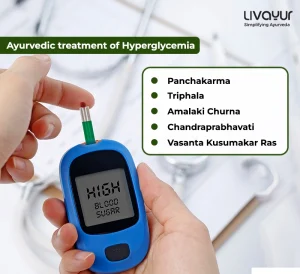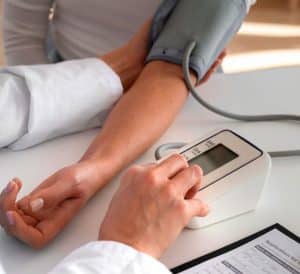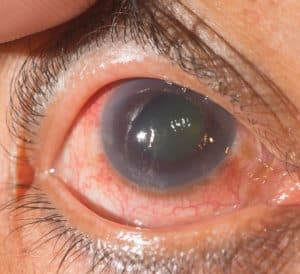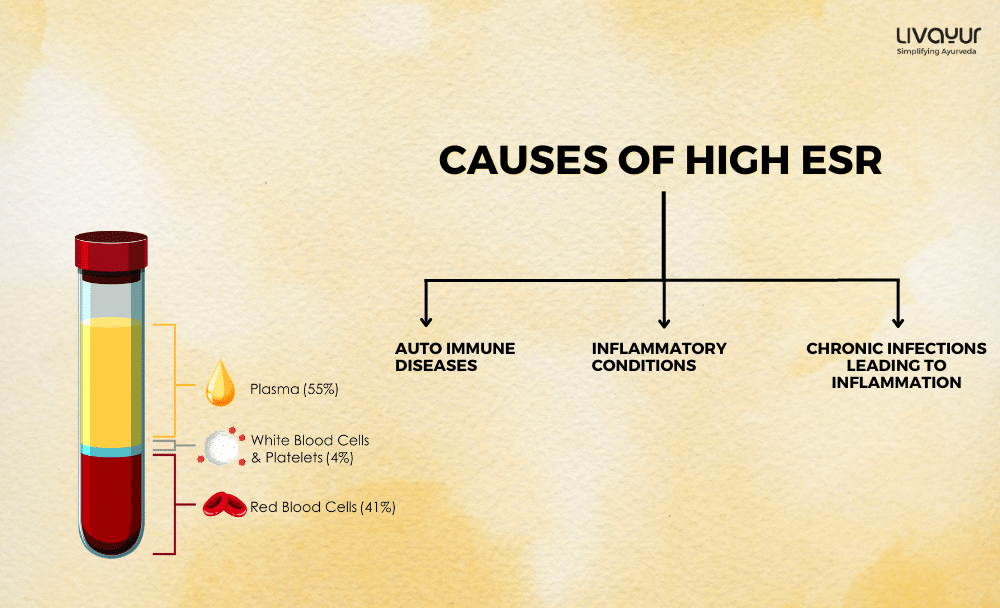
Have you heard of the ESR blood test?
Most of us are aware of the term ‘ESR’ but do not know what it is. ESR, or erythrocyte sedimentation rate, is a laboratory test that measures the rate at which red blood cells settle to the bottom of a tube over a period of one hour.
Elevated ESR, also known as high ESR, is a common finding in various diseases. High ESR can be caused by several factors, such as infections, inflammation, and autoimmune diseases. [1] In this article, we’ll look into the various symptoms of high ESR.
In this context, it needs to be mentioned that women are more prone to high ESR problems when compared to men. Why ESR is high in females is a common question most people want to know. Both men and women with high ESR will face certain specific high ESR symptoms.
The high ESR symptoms are directly related to high ESR causes. So, we’ll also learn about the causes and treatment of high ESR in this article.
What are the Symptoms of High ESR
High ESR is a non-specific laboratory finding; therefore, it may not present any symptoms in some cases.
However, in some cases, high ESR may be associated with several high ESR symptoms that can vary depending on the underlying cause. Some of the causes of high ESR and related symptoms include the following:
1. Infections
Infections such as bacterial, viral, and fungal infections can cause an increase in ESR. High ESR is often seen in patients with acute infections.
This is because, during an infection, the immune system activates a cascade of inflammatory processes, which cause the liver to produce more proteins, including fibrinogen and C-reactive protein.
These proteins cause red blood cells to clump together, resulting in an elevated ESR. Symptoms of infections may include fever, chills, fatigue, malaise, loss of appetite, and weight loss [2]
2. Inflammatory Conditions
Inflammatory conditions such as rheumatoid arthritis, systemic lupus erythematosus, and inflammatory bowel disease can also cause high ESR.
In these conditions, the immune system attacks the body’s tissues, resulting in inflammation. The inflammation causes the liver to produce more proteins, leading to an elevated ESR.
Symptoms of high ESR induced by these conditions may include joint pain, stiffness, swelling, redness and warmth, skin rashes, abdominal pain, diarrhea, and rectal bleeding [3].
3. Autoimmune Diseases
Autoimmune diseases such as multiple sclerosis and lupus can also cause high ESR. In these conditions, the immune system mistakenly attacks the body’s tissues, causing inflammation.
The inflammation leads to an elevated ESR. Symptoms of autoimmune diseases may include fatigue, joint pain, stiffness, swelling, skin rashes, and neurological symptoms such as numbness and tingling [4]
4. Cancer
Some cancers, such as multiple myeloma and lymphoma, can cause an elevated ESR. Cancer cells produce cytokines and other inflammatory molecules, which cause an elevation in ESR. Symptoms of cancer may include fever, night sweats, weight loss, fatigue, and pain [5]
5. Other High ESR Causes and Treatment
Other causes of high ESR include pregnancy, advanced age, and anemia. In pregnant women, ESR is often elevated due to the increased production of plasma proteins.
Did you know?
Moderately high ESR levels can be an early indicator of pregnancy!
In older adults, ESR can be elevated due to the presence of chronic diseases. Anaemia, a condition characterized by low levels of hemoglobin in the blood, can also cause an elevated ESR.
This is because anemia causes changes in the shape and size of red blood cells, leading to an increase in ESR [6].
It is important to note that the symptoms of high ESR may vary depending on the underlying cause. Therefore, it is essential to consult with a healthcare provider if you are experiencing any of the high ESR symptoms mentioned above.
How to Treat High ESR
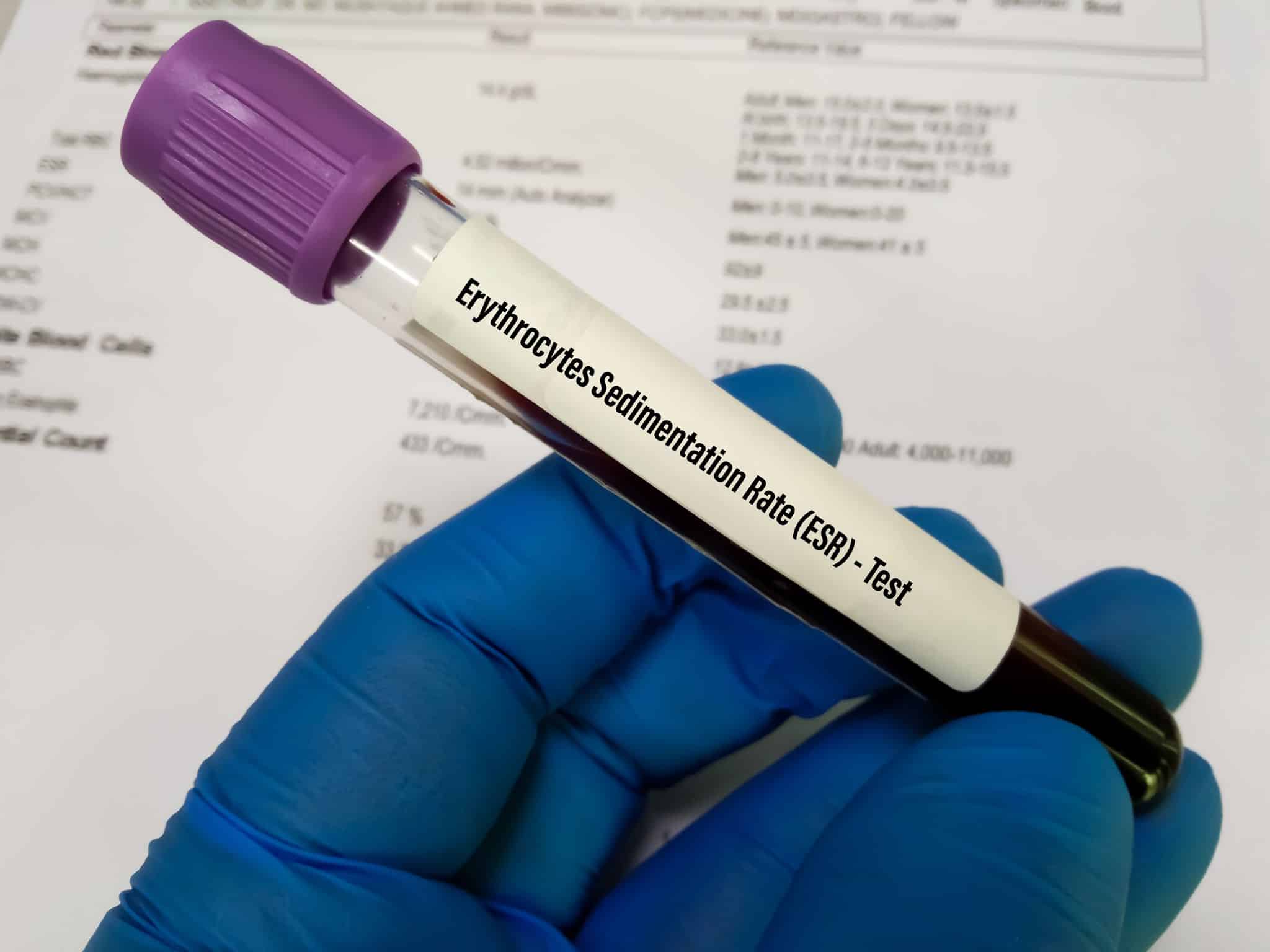
Treatment of high ESR depends on the underlying cause. Infections are usually treated with antibiotics or antiviral medications, while autoimmune diseases and inflammatory conditions may require anti-inflammatory medications such as corticosteroids, nonsteroidal anti-inflammatory drugs (NSAIDs), or disease-modifying antirheumatic drugs (DMARDs).
Cancer treatment may include chemotherapy, radiation therapy, or surgery. In some cases, treatment of the underlying cause may result in a decrease in ESR levels.
In conclusion, high ESR is a non-specific laboratory finding that can be caused by various factors such as infections, inflammatory conditions, autoimmune diseases, cancer, pregnancy, advanced age, and anemia.
While high ESR may not present any symptoms in some cases, in other cases, it may be associated with symptoms of high ESR, such as fever, fatigue, joint pain, stiffness, swelling, skin rashes, and neurological high ESR symptoms.
Treatment depends on the underlying cause and may include antibiotics, anti-inflammatory medications, or cancer treatment.
FAQs
1. What are the 3 factors affecting ESR?
The 3 factors affecting ESR are:
Plasma composition
Erythrocytes
Technical/Mechanical Factors [7]
2. Why is ESR important?
ESR is a measure of the way your body responds to inflammation and tissue damage. It also indicates the changes in your plasma protein, which is a sign of some chronic or acute infections, degenerative diseases, and tumors. ESR also indicates the progress of certain health issues, such as rheumatoid arthritis and tuberculosis. [7]
3. Can an ESR test be conducted at home?
The ESR test cannot be conducted at home. It needs to be done in a medical setting by a medical expert or phlebotomist. Mobile phlebotomist services are available, but no self-testing is available.
4. What are the best beverages to control high ESR?
High ESR may be controlled through the use of herbal beverages like Ginger tea and turmeric tea. These Ayurvedic rhizomes come with potent anti-inflammatory properties and, therefore, can bring down your ESR levels.
If you are experiencing any of the high ESR symptoms mentioned above or have a high ESR level, it is important to consult with a healthcare provider for a proper diagnosis and treatment plan.
References:
- Erythrocyte Sedimentation Rate
- Differential diagnosis of elevated erythrocyte sedimentation rate and C-reactive protein levels: a rheumatology perspective
- Inflammation and Inflammatory Diseases, Markers, and Mediators: Role of CRP in Some Inflammatory Diseases
- Erythrocyte sedimentation rate and C-reactive protein
- Elevated erythrocyte sedimentation rate is associated with metastatic disease and worse survival in patients with cutaneous malignant melanoma
- Haemoglobin concentration and erythrocyte sedimentation rate in primary care patients
- Erythrocyte Sedimentation Rate (ESR)




